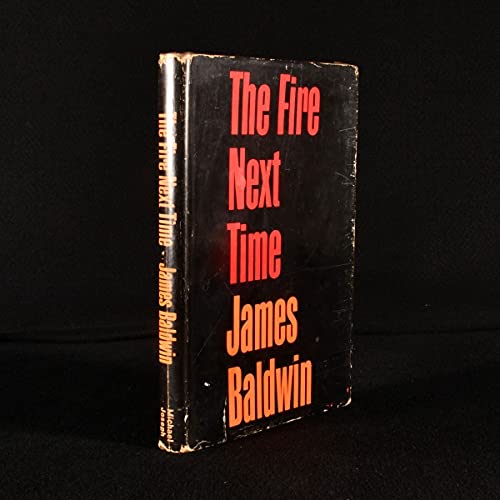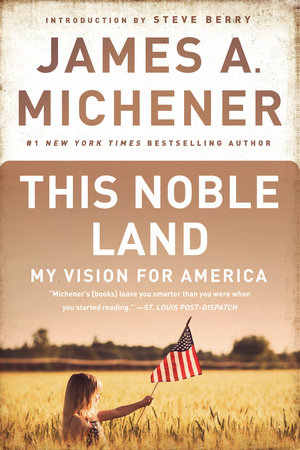In a world grappling with issues of race, prejudice, and societal injustice, the words of James Baldwin resonate as powerfully today as they did decades ago. His seminal work, “The Fire Next Time,” is not merely a literary masterpiece but a burning call to action, urging readers to confront the uncomfortable truths of American history and grapple with the complexities of racial inequality. This essay will delve into the depths of this impactful book, exploring its historical context, its enduring relevance, and its continued significance in our ongoing struggle for racial justice.

Image: www.abebooks.com
I vividly recall the first time I encountered “The Fire Next Time.” I was young, navigating the complexities of my own identity in a society that seemed to be wrestling with its own demons. Baldwin’s words, raw and unflinching, struck a chord within me, challenging my assumptions and forcing me to confront the very fabric of my understanding of the world. It was a transformative experience, setting me on a path of lifelong learning and engagement with the issues at the heart of Baldwin’s profound message.
A Letter to My Nephew: A Framework for Understanding
“The Fire Next Time” encompasses two powerful essays: “My Dungeon Shook” and “Down at the Cross.” The first, “My Dungeon Shook,” is a deeply personal letter addressed to Baldwin’s nephew, James. In this intimate and unflinching communication, Baldwin speaks directly to his nephew, guiding him through the treacherous waters of race and identity in America. More than just a letter, “My Dungeon Shook” serves as a poignant reflection on the history of racism in America, drawing connections between the past and the present, highlighting the pervasive nature of prejudice and its enduring impact on generations.
The essay grapples with the legacy of slavery and its enduring influence on American society. Baldwin delves into the psychological impact of racism, exploring the internalized self-hatred that can emerge as a result of societal oppression. He challenges his nephew to grapple with the complexities of being Black in America, urging him to find strength and resilience in the face of adversity. These poignant words resonate deeply, offering a framework for understanding the lived experiences of Black Americans and the challenges they continue to face in a society that has not yet fully reckoned with its past.
The Fire Next Time: A Prophecy of Urgent Action
The second essay, “Down at the Cross,” dives into the spiritual and religious dimensions of the civil rights movement. Baldwin, a self-described “born-again agnostic,” examines the role of religion in shaping both the historical and contemporary struggles for racial equality. He argues that the Christian faith, while often used to justify oppression, also holds the potential for liberation and the creation of a more just society. This complex and thought-provoking exploration of faith and its intersection with racial justice adds another layer of depth to Baldwin’s overall message.
The Enduring Relevance of “The Fire Next Time”
The enduring relevance of “The Fire Next Time” lies in its timeless message. Baldwin’s insightful observations on race and its impact on society remain tragically relevant in our contemporary world. Despite the progress made on racial issues since the book’s publication, America continues to grapple with deep-seated biases and inequalities. The Black Lives Matter movement, the continued fight against police brutality, and the ongoing struggle for economic justice all underscore Baldwin’s central argument: the need for a radical transformation in American society to truly address the pervasive legacy of racism.
Baldwin’s words call for a deep introspection, challenging readers to examine their own biases and confront the uncomfortable truths of American history. To truly understand “The Fire Next Time” is to embark on a journey of self-discovery, challenging our narrow perspectives and embracing a more nuanced understanding of the complex realities of race in America. It is a book that demands our attention, urging us to engage in dialogue, challenge the status quo, and work towards a more just and equitable future.

Image: www.penguinrandomhouse.com
Beyond the Book: Continuing the Conversation
The publication of “The Fire Next Time” sparked a national conversation about race and social justice. Its impact was profound, influencing both the civil rights movement and the broader fight against racism. Today, the book continues to inspire readers, writers, and activists alike, serving as a potent reminder of the ongoing struggle for racial equality. To truly embrace Baldwin’s message is to engage in an ongoing dialogue, challenging complacency and actively working towards a brighter future.
The power of “The Fire Next Time” lies not only in its words but also in its enduring influence. It serves as a reminder that the fight for racial justice is a continuous journey, requiring constant vigilance and unwavering commitment. By reading and discussing this powerful work, we can all become more informed and engaged citizens, actively working to dismantle the systemic barriers that continue to hold back communities of color.
Tips for Reading “The Fire Next Time”
Reading “The Fire Next Time” can be a profoundly moving and impactful experience. To enhance your understanding and deepen your engagement with Baldwin’s work, consider these tips:
- Read the essays in order. “My Dungeon Shook” serves as a foundation for understanding “Down at the Cross,” providing crucial context for the spiritual dimensions of the civil rights movement.
- Take your time. Baldwin’s prose is dense and thought-provoking, demanding careful consideration and reflection. Allow yourself the time to fully absorb his words.
- Reflect on your own biases. Baldwin’s essays challenge readers to confront their own preconceptions about race and social justice. Be prepared to question your assumptions and engage in critical self-reflection.
- Engage in dialogue. Share your thoughts and insights with others, engaging in conversations about the book’s themes and its relevance today.
By following these tips, you can enhance your reading experience and deepen your understanding of “The Fire Next Time.” Remember, Baldwin’s work is meant to be experienced, challenged, and debated. Embrace the complexities of his message, allowing it to ignite your own journey towards a more equitable and just society.
FAQ: The Fire Next Time
Q: What is the significance of the title “The Fire Next Time”?
A: The title is a reference to a quote from a spiritual, “The fire next time, it’ll be the judgment day.” Baldwin uses this imagery to emphasize the urgency of addressing racial injustice, suggesting that failure to do so will lead to catastrophic consequences.
Q: How does “The Fire Next Time” connect to contemporary issues?
A: Baldwin’s insights on race, poverty, and social justice remain profoundly relevant in our own time. The book offers a critical lens through which to understand ongoing struggles for racial equality, police brutality, and economic justice.
Q: What is the main argument of “The Fire Next Time”?
A: Baldwin argues that the United States must fundamentally confront its history of racism and the enduring legacy of slavery. He calls for a radical transformation in societal structures to achieve true equality and justice.
Q: Why is “The Fire Next Time” considered a classic of American literature?
A: “The Fire Next Time” is recognized as a classic due to its powerful prose, its unflinching examination of race in America, and its enduring relevance to contemporary social issues.
The Fire Next Time By James Baldwin Pdf
Conclusion: A Call to Action
James Baldwin’s “The Fire Next Time” is more than a book; it is a call to action, urging readers to confront the uncomfortable truths of our past and fight for a more just and equitable future. By delving into its profound themes, we gain a deeper understanding of the complexities of race in America and the ongoing struggle for equality. Are you ready to join the conversation? Does “The Fire Next Time” hold a special place in your reading experience?






